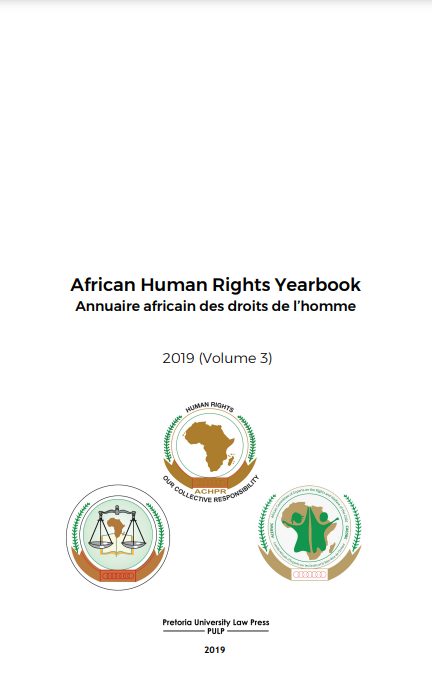A missed opportunity on the mandatory death penalty: a commentary on Dexter Eddie Johnson v Ghana at the African Court on Human and Peoples’ Rights
DOI:
https://doi.org/10.29053/2523-1367/2019/v3a23الكلمات المفتاحية:
African Court on Human and Peoples’ Rights، comparative constitutional law، admissibility، Ghana، Johnson v Ghana، mandatory death penalty، non bis in idem، res judicataالملخص
ABSTRACT:In March 2019, the African Court on Human and Peoples’ Rights declared Dexter Eddie Johnson v Ghana inadmissible on the basis that the case had already been decided by the UN Human Rights Committee and therefore was ‘settled’ under article 56(7) of the African Charter. The UN Human Rights Committee had previously found Ghana in violation of its international human rights obligations by sentencing Johnson to a mandatory death sentence for murder, reaffirming a considerable body of comparative and international jurisprudence that the mandatory death penalty was a human rights violation. In finding the case inadmissible, the African Court construed Ghana’s violation narrowly, as encompassing only the initial 2008 death sentence. However, conceiving of Ghana’s violation more broadly, including its failure over ten years to commute Johnson’s death sentence or offer him a sentencing hearing, and its failure to implement the 2014 finding of the UN Human Rights Committee, would have been consistent with the Court’s rules and prior jurisprudence. Certainly, the combination of the delay, conditions on death row, and mental state of the petitioner would establish an additional human rights violation beyond the initial mandatory death sentence. Although the UN Human Rights Committee and the African human rights system have reciprocal rules to prevent re-examination of the same facts twice, the African Court was more restrictive in its admissibility holding in Johnson than the Committee would have been. The Court therefore missed an opportunity to contribute to the growing jurisprudence against the mandatory death penalty and has left Johnson without a remedy.
TITRE ET RÉSUMÉ EN FRANCAIS: Une opportunite manquée au sujet de la peine de mort obligatoire: commentaire de l’arrêt de la Cour africaine des droits de l’homme et des peuples dans l’affaire Dexter Eddie Johnson c. Ghana RÉSUMÉ:
En mars 2019, la Cour africaine des droits de l’homme et des peuples a déclaré irrecevable la requête en l’affaire Dexter Eddie Johnson c. Ghana, au motif que le cas avait déjà fait l’objet d’un règlement par le Comité des droits de l’homme des Nations Unies et avait par conséquent été « réglé » au sens de l’article 56(7) de la Charte africaine. Le Comité des droits de l’homme des Nations Unies avait précédemment conclu que le Ghana avait violé ses obligations internationales en matière de droits de l’homme en condamnant Johnson à une peine de mort obligatoire pour meurtre, réaffirmant ainsi une jurisprudence établie en droit comparé et international selon laquelle la peine de mort obligatoire constitue une violation des droits de l’homme. En déclarant la requête irrecevable, la Cour africaine a fait une interprétation restrictive de la violation commise par le Ghana comme n’incluant que la peine de mort initiale prononcée en 2008. Cependant, concevoir la violation du Ghana plus largement, y compris son incapacité pendant 10 ans à commuer la peine de mort prononcée contre Johnson ou à lui accorder une audience sur la détermination de sa peine, et son incapacité à mettre en œuvre les conclusions du Comité des droits de l’homme de 2014, auraient été conformes aux règles de la Cour et de sa jurisprudence antérieure. Certes, la combinaison du retard, des conditions dans le couloir de la mort et l’état mental du requérant établirait une violation supplémentaire des droits de l’homme allant au-delà de la peine de mort obligatoire initiale. Bien que le Comité des droits de l’homme des Nations Unies et le système africain des droits de l’homme disposent de règles analogues pour empêcher le réexamen des mêmes faits à deux reprises, la Cour africaine a été plus restrictive quant à la recevabilité de l’affaire Johnson que le Comité l’aurait été. La Cour a donc raté une opportunité de contribuer à la jurisprudence croissante contre la peine de mort obligatoire et a laissé Johnson sans recours.


